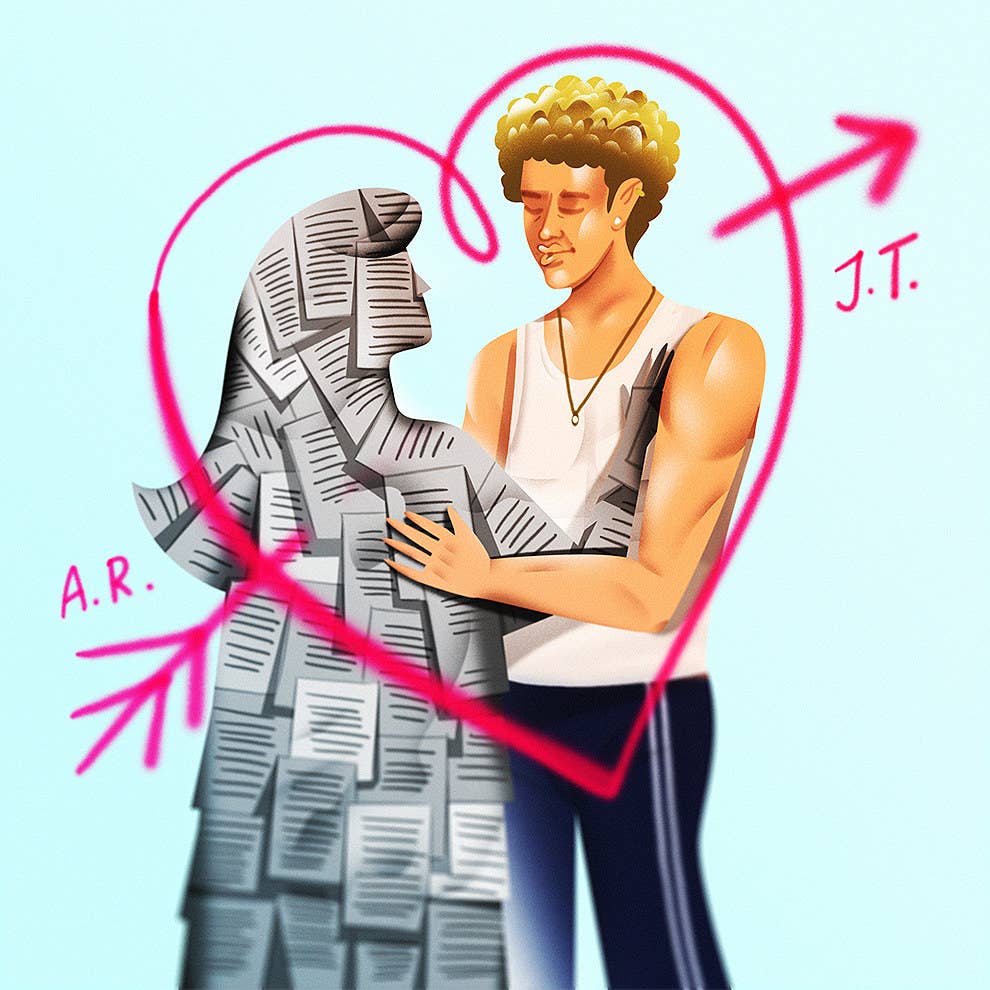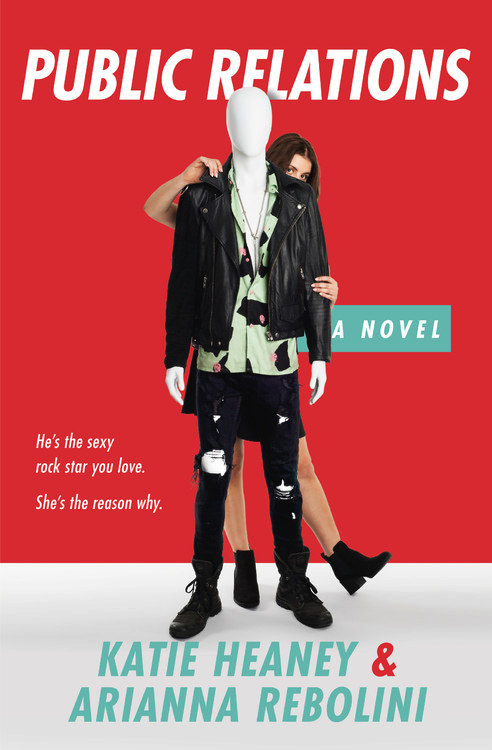
At 13 years old, there was one thing I knew for sure: If ever I were to meet Justin Timberlake, it would have to be under the pretense that I wasn’t a fan.
Trust, I’d given it a lot of thought. Imagining all of the possible ways I could end up in the same room as JT was at the top of my list of favorite pastimes, right next to listening to NSYNC. I knew the most likely way to meet him would be in the capacity of a fan, maybe at a meet-and-greet or by winning backstage passes, but I also understood that if I wanted Justin to take me seriously — and that was key, if we were going to fall in love — I couldn’t come across as some embarrassing, giddy, fawning fan. Which, of course, I was.
So I spent hours imagining our possible love stories — as I was falling asleep, when I was daydreaming in class, wherever. These were PG-rated rom-coms, starring future me and (somehow) 1998-era Justin Timberlake. The scenarios were convoluted; they had dialogue; I knew what I’d be wearing and exactly how I’d win him over. I didn’t know it at the time, but I was creating fanfic — more than a decade before I knew there was such a thing.
I fell hard for NSYNC, and Justin, in 1998, right around when the “Tearin’ Up My Heart” video came out. Before that, I’d been dismissive of boy bands. I was raised primarily on rap and R&B, my parents hailing from what my dad called, to my great embarrassment, the “Boogie-Down Bronx.” So I knew what good music was, and this pretty-boy stuff was not it. But then TRL became a thing, and these boys were unavoidable. And then I saw the video. More specifically, I saw Justin’s arm in a tank top, bent over his glossy blonde curls and pouting lips — just so.
I am not hyperbolizing when I say something deep within me shifted in that moment. I’d had celebrity crushes before, but I was mostly too embarrassed to even admit them to myself. (In a fill-in-the-blank journal from when I was 8, I’d crossed out an “I have a crush on ____” prompt and substituted in tiny letters above it, “I sort of think the Fresh Prince is cute.”) Those were the fleeting interests of an amateur; this crush — this passion — settled into my core. As a chubby, bespectacled middle schooler who had heavy bangs long past the time everyone else had grown them out, I was scared of people in general and terrified especially of boys. But man, those biceps sure seemed like they’d be fun to touch.
Part of loving a famous icon is the acute agony of knowing he is unreachable.
Within months, I was all in. I owned approximately 40 pieces of NSYNC merchandise: multiple posters, pins, one giant pencil, a journal, a folder, pens, stickers, patches, every magazine with the band on the cover, lip balm, their official book, textbook covers, dolls, shirts, and, of course, CDs. I recorded (on actual VHS tapes!) every music video and MTV appearance, as well as their HBO special, and I watched a random segment from those tapes with a bowl of cereal every morning before school. I went to two concerts and cried both times. I read every bit of trivia. I memorized Justin’s birthday (Jan. 31) and favorite movie (The Usual Suspects). And when MTV linked up with Star Wars for a trivia sweepstakes, the prize for which involved a one-on-five date with the boys, I saw The Phantom Menace in theaters four times to try to answer their list of questions. I didn’t win.
People who’ve never experienced this specific brand of boy-idol love might be baffled by the fact that it often brings millions of girls to tears. What they don’t understand is that part of loving a famous icon is the acute agony of knowing he is unreachable. I loved Justin Timberlake so much, just like millions of other girls in the world, and not only would I never be with him, but I’d never be able to appreciate a real relationship, because I’d know the person I ended up with would not be the man I loved the most. [Quick note to say hi to my boyfriend, whom — I want to be clear — I love much more than I love Justin Timberlake.] I felt this massive injustice as a true, powerful, physical pain. The only way I was able to mitigate it was to distract myself with stories that placed me and JT in a universe where we could be together.
By the time I was fully under siege by NSYNC obsession, I’d begun writing, and abandoned, three novels. I loved reading, I wrote in my journal every day, and I knew I wanted to be a writer when I grew up — either that or a singer (still on the fence, to be honest). But when I tried to write fiction, I hated what came out. I’d suddenly lose any imagination I had. The dialogue didn’t make sense. Nothing sounded as real or natural as the stuff I was reading. I didn’t know how people got ideas, and, if they were lucky enough to come up with one, how they didn’t get bored with it.
But love stories about me and JT? Those came easy.
One of my favorites: I’m 18, finally, and super hot (finally). NSYNC is still touring because they will never ever break up, and they’re holding a contest (a singing contest), and the winner gets to sing a song with them onstage. I’m not planning on trying out, but I go with a friend who is. When we get to the audition room, after my friend sings well but not too well, Justin (who is, obviously, judging) asks what I’ll be singing. And I say, Oh me? No, no, I’m just here for support, I couldn’t possibly.
And then my friend says, She actually has a great voice.
And Justin smiles wryly, and I’m like, Well, if you insist, though I’m hardly prepared!
Justin, the rest of the boys, and my friend needle me until finally I close my eyes and just go for it, belting (usually, though, this detail changed from time to time) some vintage Mariah Carey. I nail it, a cappella, and everyone — especially Justin — is blown away. And then I win, and then we fall in love.
In these imagined futures, Justin played an important role, but the real star was future me.
Or: I bring my younger cousin to a concert, and we wait outside afterward because she wants to meet the guys. When they come by to say hello (because of course they do) I kind of smirk and shrug and say, I’m sorry to bother you guys — she’s just such a fan. And Justin, who is floored by the fact that this cool (and hot, so frickin’ hot) chick isn’t remotely impressed by him, says, And you’re not? And I say something so chill, like, Pop music isn’t really my speed. And then he asks if I want to hang out. And then we fall in love.
The fantasies were many and varied and provided a vital, immersive respite from the life I was actually living — one consisting mainly of wondering what made the popular kids popular, how people mustered the courage to speak up in large groups, and why I’d gotten stuck with a body all plump and wrong, so unlike all the others I saw on TV. In these imagined futures, Justin played an important role, but the real star was future me. And she was everything I needed to believe I’d become — attractive, witty, and, above all, bold. If I could trust that self was waiting for me, those in-between years seemed a little more manageable.
There is a name for what I was doing, though I didn’t know it at the time. I was creating fanfiction — those amateur, fan-written, oft-mocked stories featuring characters created by other writers (or real pop stars) as well as first- or second-person narration, which have found vibrant communities on websites like Tumblr and Wattpad. But I kept mine to myself. The stories I actually wrote down, and eventually showed to other people, never starred dreamy pop idols. It didn’t seem like something a "Real Writer" would do, as if “good” writing and joy were mutually exclusive. But I now find kinship among those who contribute to these platforms. To say fanfiction stories are nothing but personalized soft porn for horny girls (which, to be very clear, is an important part of what they are, and which I’m 100% for) is to greatly underestimate their power.
That fanfiction has real commercial power is now well-acknowledged; Fifty Shades of Grey, originally written as Twilight fanfic, is probably the most mainstream, but Anna Todd also turned her One Direction fanfic After into a six-figure book deal and a wildly successful trilogy. Then there are the “retellings,” i.e. fanfic approved by the literati: Gregory Maguire’s Wicked, the series and musical about Frank L. Baum’s Oz witches, or Jean Rhys’s Wide Sargasso Sea, an imagined prequel to Jane Eyre. Which is to say, writers pull inspiration from all manner of sources; sometimes the result is a love story that asserts the validity of a young woman’s (often dismissed) desire. Sometimes it is a channel through which a burgeoning writer can deliver and refine her talent.
My stories, like those of many fanfic writers, were as much about building a narrative as they were about enacting a fantasy.
My stories, like those of many fanfic writers, were as much about building a narrative as they were about enacting a fantasy. I can remember how problems of character motivation seemed so much less abstract when they were considered through the lens of an imagined, but possible, future — Justin Timberlake was a real (if mythic) person, and structuring the narrative became a sort of problem-solving. What could a person like me do to meet a person like him? I struggled to figure out what an 8-year-old would do if she found a secret portal to a fantasy world (my second abandoned novel), but I loved putting myself in conversation with my ultimate crush and asking, What next? What next?
There is a simple, dizzying joy in writing (or reading!) a story in which you and your dream crush are the stars, but also intrinsic to that setup is the understanding that you — the writer, the reader — deserve the star treatment you’re receiving. If this is something you don’t believe (and certainly, when I was imagining my own love stories, I didn’t believe it), it can be comfort enough to pretend you do, to indulge the notion that you might be good enough to be the protagonist of your own story for long enough that it no longer feels that far-fetched.
I didn’t meet Justin Timberlake (and haven't yet). But I did grow into my confidence and my voice — a voice which I know was honed by the stories I told myself. Without those stories, there would be no writing career, no novel, no unrepentant gushing over the things (and people) that drive my creativity. There’s probably a lot more of 13-year-old Arianna in me now than 13-year-old Arianna would have wanted. But, at 30, I can see she was always cooler than she believed, anyway. I like to think, had Justin met me then, he would have at least been kind of charmed. ●

Arianna Rebolini is author of the novel Public Relations with Katie Heaney. She was formerly a deputy editorial director at BuzzFeed. You can follow her @AriannaRebolini or check out her writing here.
Learn more about Public Relations here.
